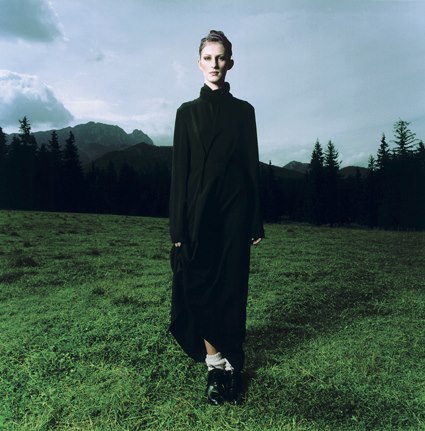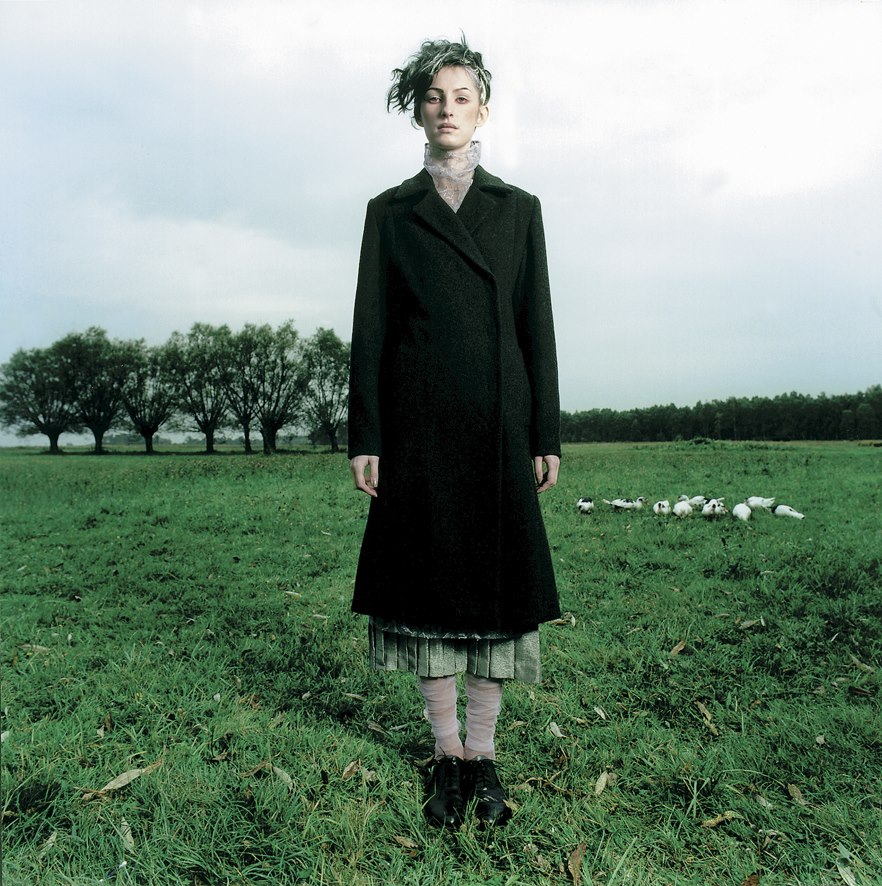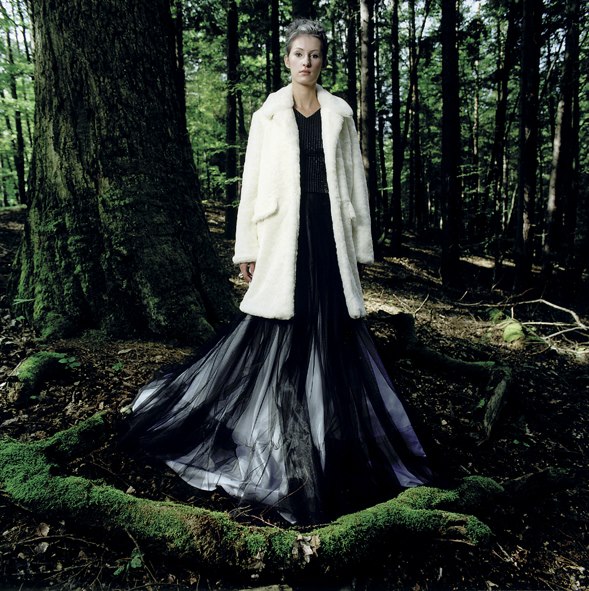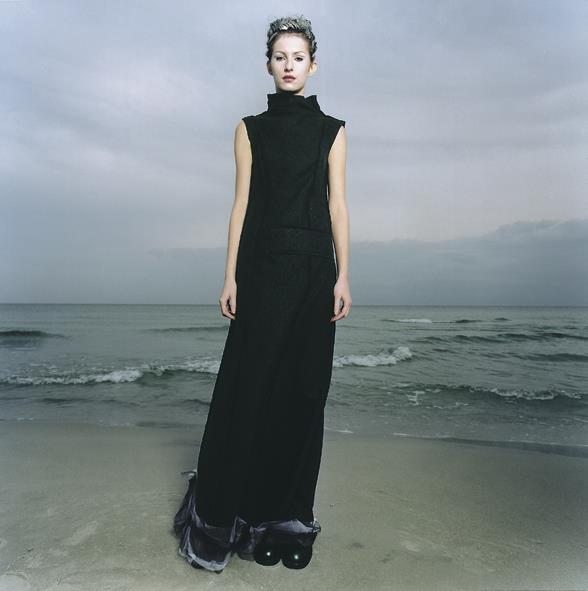Since the collapse of Communism there hasn’t been anyone quite like Joanna Klimas
Monochrome Minimalism
Collection of Joanna Klimas, photo Jacek Poremba, 1998, Courtesy Of Joanna Klimas
Since the collapse of Communism there hasn’t been anyone quite like Joanna Klimas. This former therapist had a strong, monochrome style which included heavy women’s suits complete with masculine-looking shirts and asymmetric jackets reminiscent of workers’ uniforms.
Her fashion shows were dominated by masculine flat-heeled shoes. However the key distinguishing feature of Klimas’ work was her cut, which was very much in the spirit of Calvin Klein and Helmut Lang, while her designs were also influenced by the work of Yohji Yamamoto.
Klimas, a psychology graduate, began her fashion career just after the fall of the Berlin Wall and in 1993, she asked by her friends to rescue her ex-husband’s failing clothing company. Their new employees initially scoffed at Klimas’ extremely simple and dreary designs, which went against the trend of western luxury found in Dynasty and Beverly Hills 90210. With her boyish haircut, plain jacket and men’s shoes, Klimas was promoting harsh minimalism and extreme functionalism.
Polish top models Małgorzata Niemen i Ivo Nikić wear Joanna Klimas clothes, 1996
Joanna Klimas’ fashion house was founded in 1995 and within a year she opened her first boutique in central Warsaw. Klimas not only designed her own collections, but also created clothing on commission for the newly launched Elle Magazine, which was struggling to find new local designers. Klimas was the first recipient of an Elle Style Award and the first Polish designer to feature on the Absolut calendar.
Journey through Poland, 1998
In 1997 Klimas created three clothing lines: Joanna Klimas, Joanna Klimas City and Joanna Klimas Classic. By now she owned several dedicated boutiques and sold her clothing in larger multi-brand stores. The headquarters of her fashion house were located in a historic lace factory, which soon became the trendiest address in Warsaw.
In the 1990s Poland saw a flood of chain stores selling cheap goods from Asia and Africa. Joanna Klimas, whose luxury clothing was made in Poland by Polish dressmakers, refused to compromise on quality or aesthetics, but she was unable to design clothing as cheaply and quickly as the market demanded. She shut up shop in 2001 and began collaborating with the Polish National Opera, creating innovative costumes for Mariusz Treliński’s celebrated production of Tchaikovsky’s Onegin. In 2009 she returned to the catwalk with a fantastic collection which sought new forms and aesthetics. Today, Joanna Klimas’ cosy white-walled atelier is located in the Warsaw district of Muranów.
Joanna Klimas in Atlas Deluxe Hotel in Lviv, 2016







